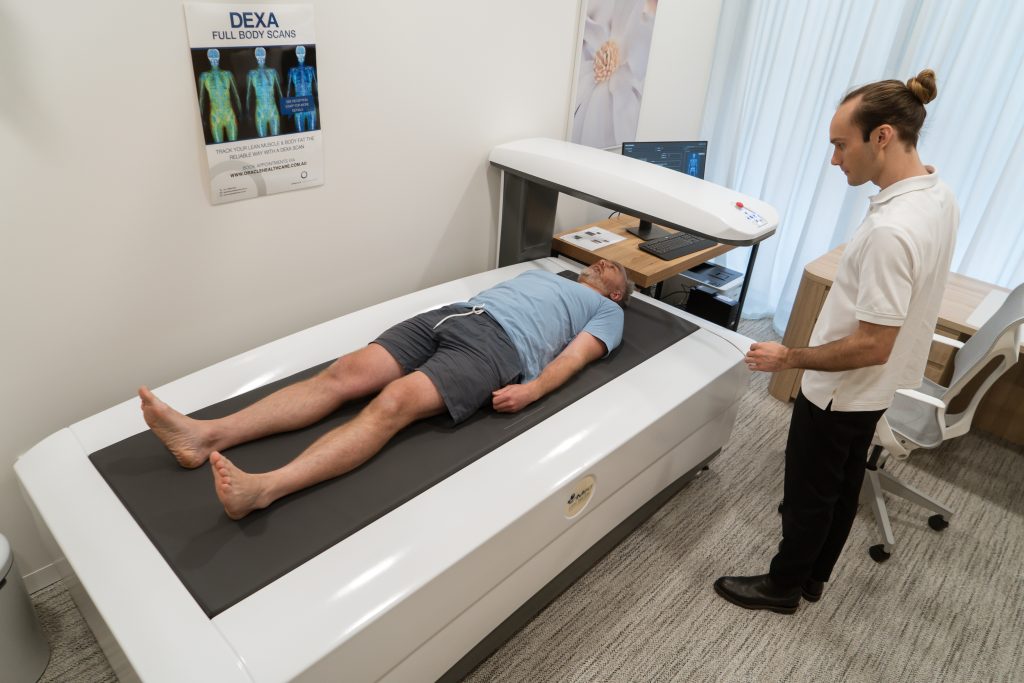
Strong bones, longer years


Measure your risk of osteopenia and osteoporosis
Osteoporosis is a common disease where your bones become brittle and fragile, meaning you are more likely to fracture or break a bone if you fall over. It is normal for our bones to weaken with age, but in some people, this loss of bone density happens too quickly.
Osteopenia is a precursor to osteoporosis. A person with osteopenia has below average bone density for their age, but not yet at a level where fractures are likely to occur. Osteopenia can be a warning sign to take preventive measures to stop the progression to osteoporosis.
Osteoporosis and osteopenia are not just ‘women’s diseases’. Men represent up to 30% of all fractures related to osteoporosis and osteopenia. If you have higher-than-average risk factors for osteoporosis, your doctor might refer you for a DEXA bone mineral density scan.
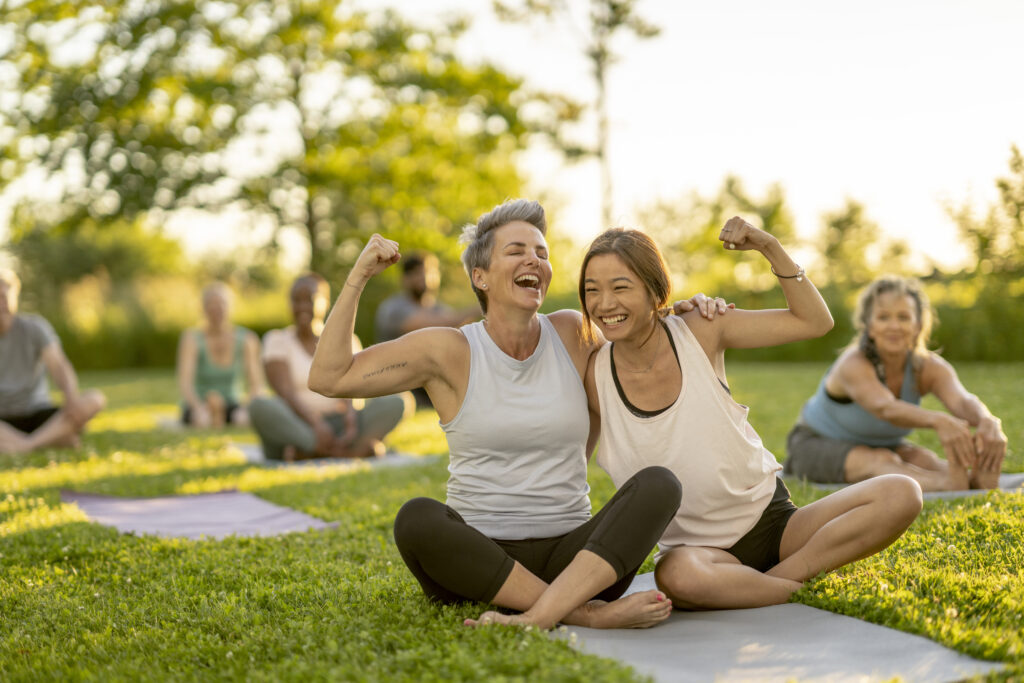
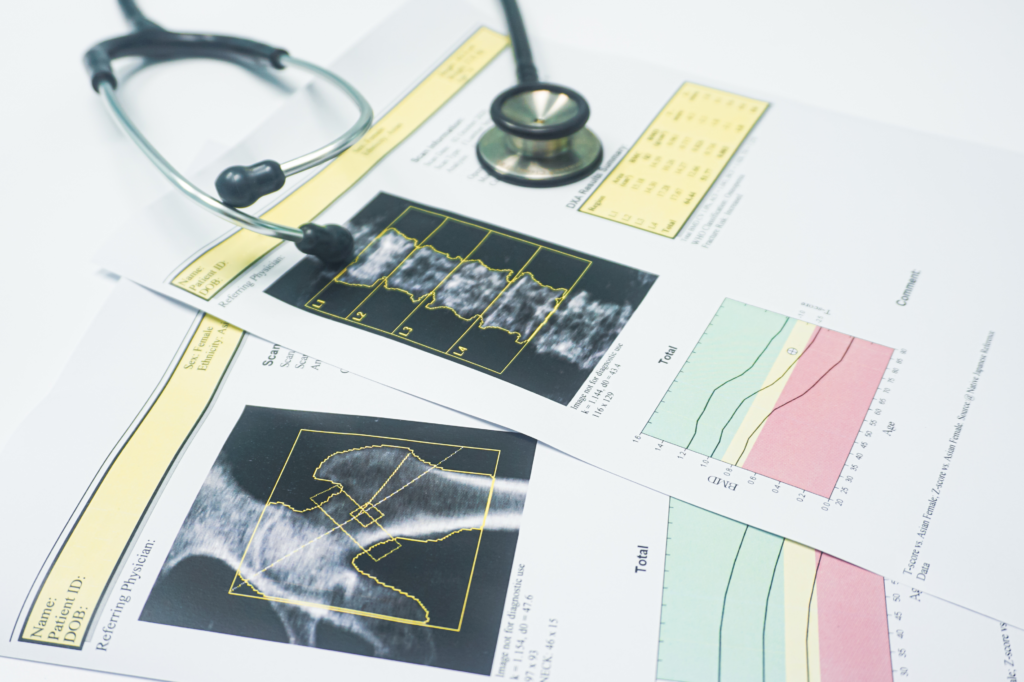
What is a DEXA bone mineral density scan?
A DEXA bone mineral density scan is a medical test used to diagnose osteopenia, osteoporosis and determine your risk of fractures in the future.
DEXA, which stands for Dual X-ray Absorptiometry, is one of the most accurate methods for analysing the density of your bones. DEXA measures how many grams of calcium and other bone mineral are packed into a segment of your bone and compares it to the population norm.
DEXA can also detect decreasing bone density and strength at an early stage when intervention treatment can be beneficial.
Who should have a bone mineral density scan?
- Peri-menopausal and post-menopausal women concerned about their bone health
- People with osteoporosis or osteopenia
- People with a family history of osteoporosis
- Men and women over the age of 70
- People with malabsorption disorders such as Coeliac Disease, chronic conditions including liver disease, kidney disease, Rheumatoid Arthritis or with low levels of Vitamin D and Calcium
- People with a history of long-term steroid use
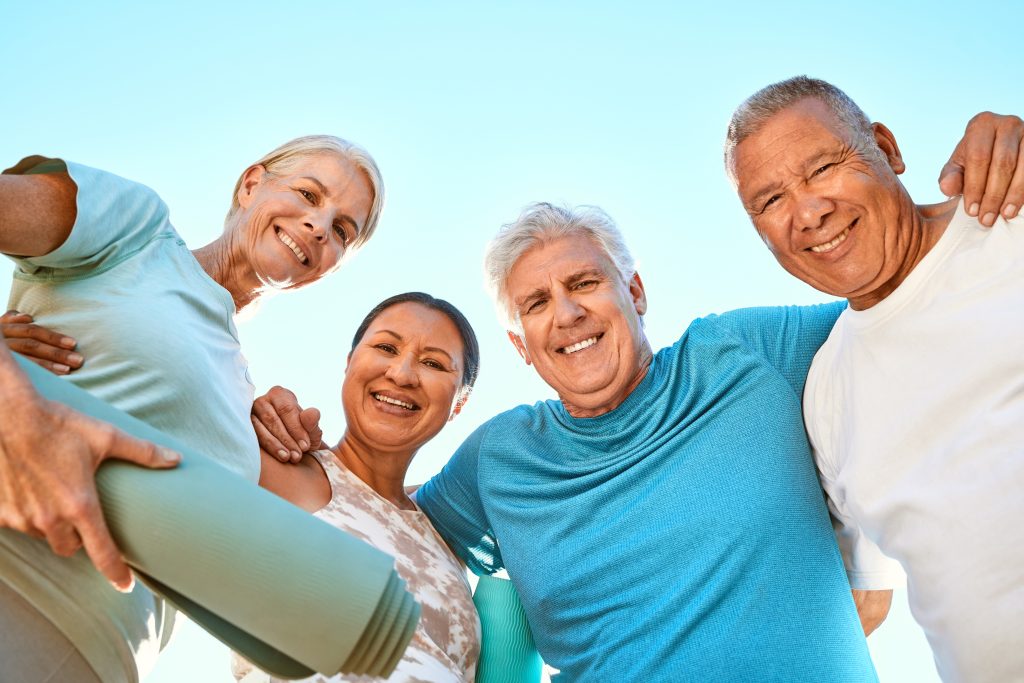
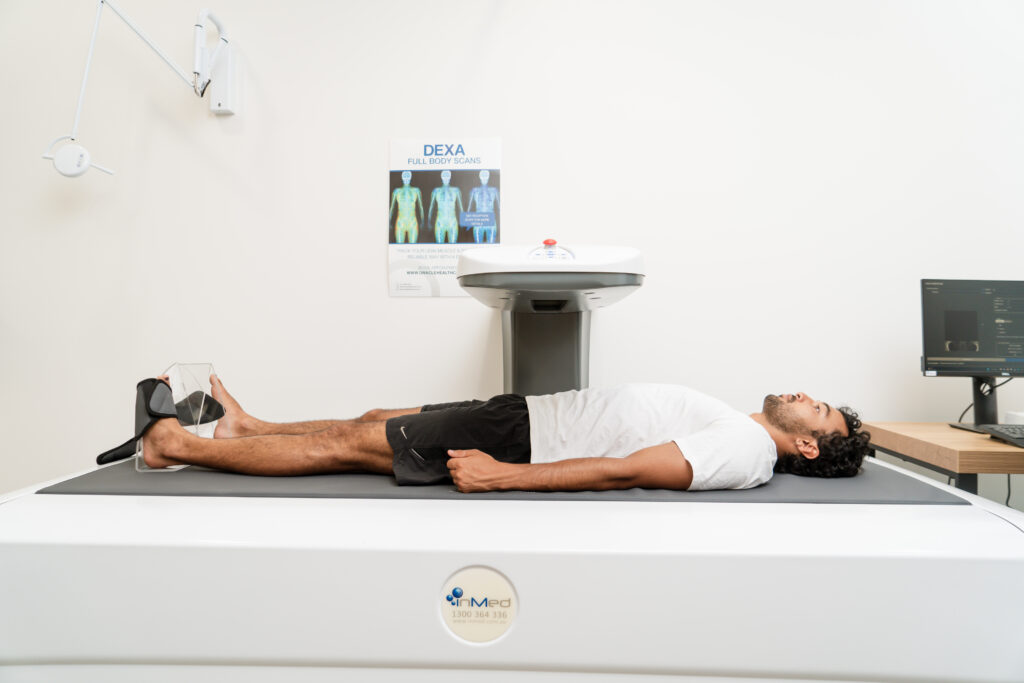
What to expect at your DEXA bone mineral density scan
A bone density scan will usually take about 15 minutes and involves measuring the bone mineral density in your hips and your lumbar spine. The bone density of these areas provides an accurate indication of your overall bone density.
During the test you will lie on a padded bed, while the arm of the DEXA machine passes over your body. The test is painless, and the radiation exposure of this test is very low.
You do not need to get undressed for a DEXA scan, but you should wear loose fitting, comfortable clothing. Remove all metal jewellery and items in your pockets and ensure your clothing has no metal parts, such as fasteners or bra underwires.
What do the results of your DEXA bone mineral density scan mean?
Your bone density scan result is reported as a ‘T-score’ which shows how your bone density compares against an average population.
- A T-score of -1 or higher is considered normal.
- A T-score between -1 and -2.5 indicates lower than normal bone density (osteopenia), increasing the risk of developing osteoporosis
- A T-score of -2.5 or lower indicates existing osteoporosis
Based on the result of your scan, our specialist team will determine the appropriate treatment to help you improve your bone health.
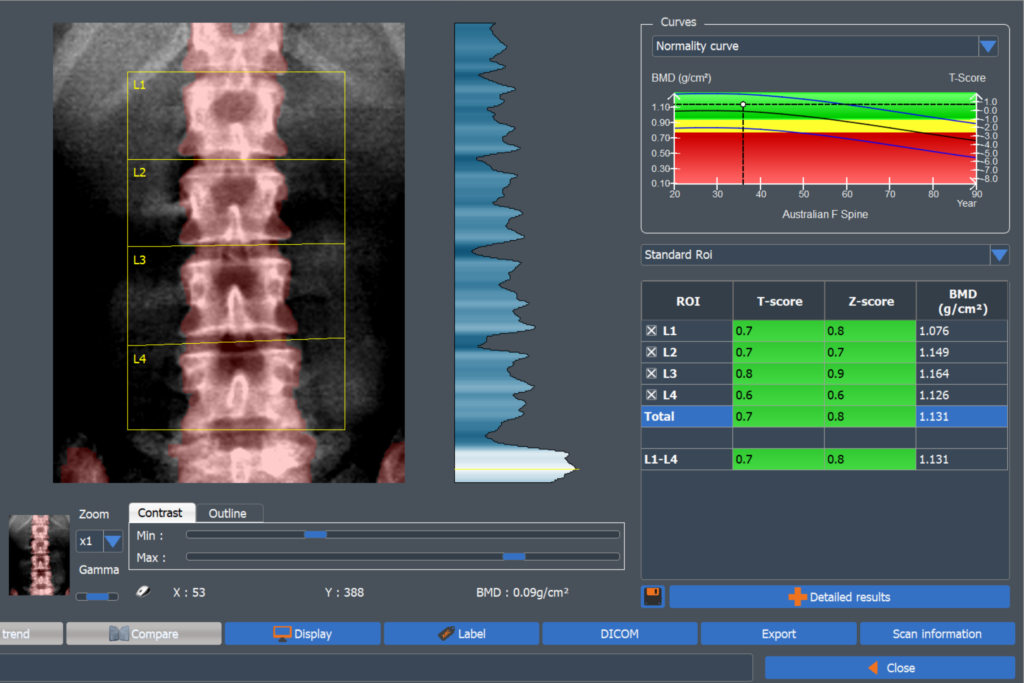
DEXA Bone Mineral Density Scan Pricing
-
DEXA scan
-
Radiologist review
-
Detailed report
-
Results discussion with Doctor
Frequently asked questions
A initial DEXA scan appointment will usually take around 30 minutes, and a follow-up DEXA scan appointment will take around 15 minutes.
We recommend wearing loose, light, comfortable clothing. No denim or metal including belt buckles or bras with underwires or fasteners.
Yes, however the amount of radiation used in DEXA scans is very low, and less than most common x-rays.
Despite being very safe, DEXA scans are not recommended for pregnant women.
Yes, you can eat and drink normally before a bone mineral density scan. However, if you are also having a DEXA body composition scan, please arrive for your DEXA scan overnight fasted.
Yes you can exercise before a DEXA scan.
Yes, a referral is required from your GP or specialist.
Medicare rebates are available for people over the age of 70, or those already diagnosed with osteoporosis, or with osteoporosis risk factors.
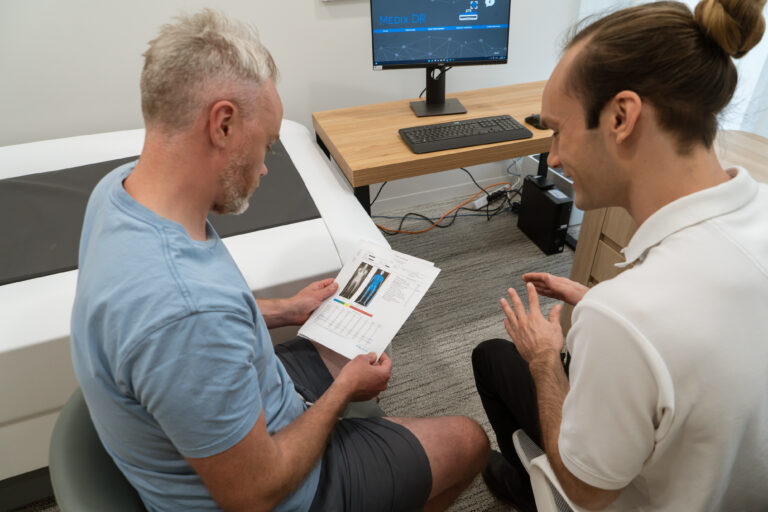
Your journey to optimal health starts here
For more information about a DEXA bone mineral density scan, or to find the right health assessment package for you or your team, call us on +61 2 8866 2222, or fill out the form below and one of our friendly experts will be in touch.